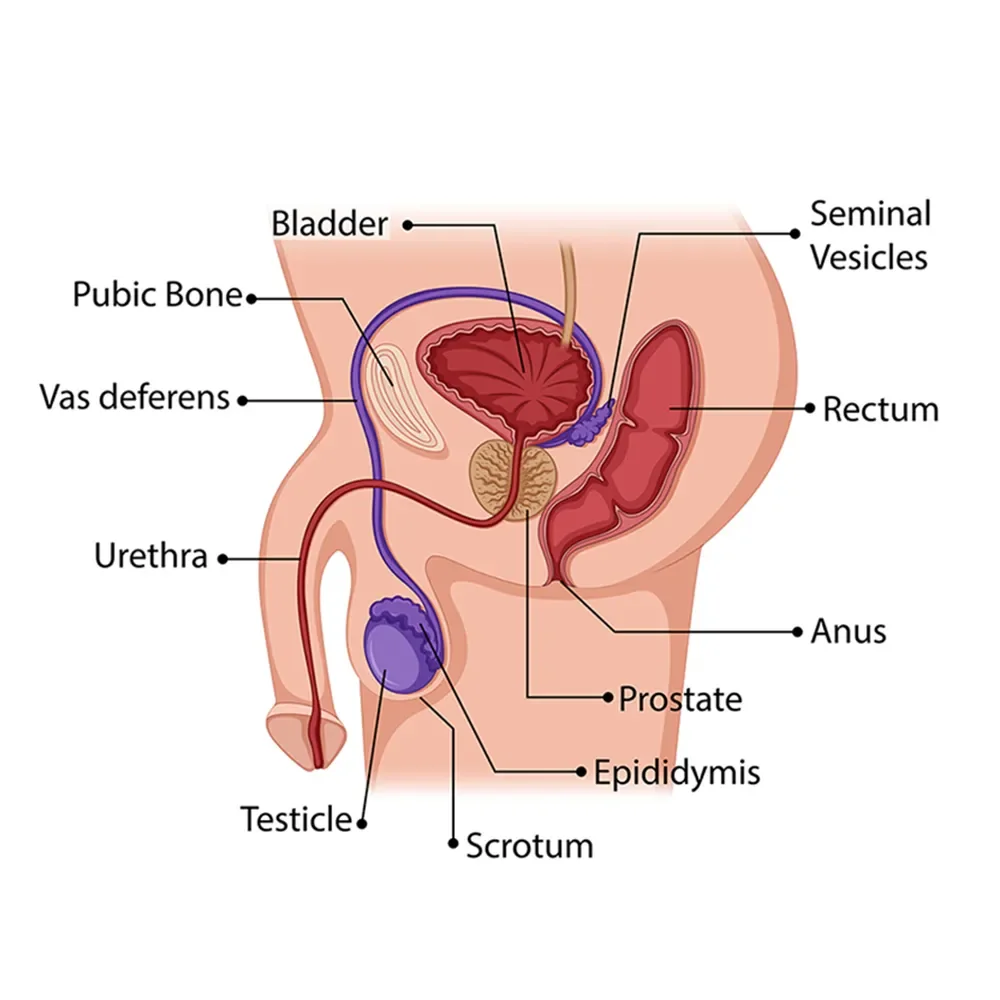Premature Ejaculation
The most common male sexual dysfunction. We assess underlying factors and offer stepwise therapy—from behavioral strategies and medications to targeted procedures—tailored to personal goals and comfort.
Evaluation & tailored care
Clinical PE often refers to ejaculation within ~2 minutes after penetration, or any timing that causes distress. We individualize therapy based on medical history, sensitivity, and partner feedback.

A structured approach to PE management
Causes can involve neurobiological sensitivity, psychological contributors, or comorbid ED. We combine counseling with proven medical options for durable improvement.
- Medications: on-demand agents where approved (e.g., dapoxetine); daily SSRIs under supervision.
- Topicals: anesthetic sprays/creams to reduce glans sensitivity with guidance.
- Adjunct procedure: glans filler in select cases to lessen sensitivity (local anesthesia, short visit).
Education and expectation setting are central. We provide practical techniques and follow-up to monitor progress and adjust treatment.
Book a consultation to discuss options that fit your lifestyle and preferences.
Premature Ejaculation — Frequently Asked Questions
Clear answers about premature ejaculation (PE), its causes, treatments, and next steps.
What is premature ejaculation? What is a “normal” duration?
PE is ejaculation that occurs earlier than desired during sexual activity. Ejaculation within the first 1–2 minutes after vaginal penetration is commonly considered PE. In healthy men, the average intravaginal ejaculation latency time is about 5–7 minutes; however, comfort and control matter more than the exact duration.
What causes PE?
Psychological factors (stress, anxiety, performance pressure, relationship issues) and biological factors (glans hypersensitivity, prostatitis, thyroid problems, genetic predisposition) can play a role. Causes are often combined.
Can prolonged abstinence trigger PE?
Yes. After long gaps, control time may be shorter in the first encounter; this can be temporary and typically improves with regular sexual activity.
Can PE be completely treated?
In most men, PE can be effectively controlled. Outcomes vary by individual; however, a combination of start–stop, squeeze, and Kegel techniques; medications; and in selected cases glans hyaluronic acid (HA) filler can provide durable improvement.
Are there medications for PE?
Yes. Certain antidepressants (SSRIs) at specific doses and topical anesthetics (sprays/gels) are used to delay ejaculation. Their effects are usually temporary and diminish as the drug wears off. They should be used under medical supervision; self-medication carries risks of side effects and drug interactions.
Do sprays, creams, or gels actually work?
By reducing sensitivity, they can extend duration, but effects are temporary and vary between individuals. Possible side effects include numbness and, if misused, reduced sensation in the partner. They are not a standalone permanent solution; best results come when combined with behavioral training and clinical guidance.
Can I do home exercises for PE?
Yes. The start–stop and squeeze techniques are well known. Regular Kegel exercises strengthen the pelvic floor and improve control (essentially the muscles used to stop urination).
How can I tell if it’s psychological or physical?
If the issue persists for a long time and occurs with every partner, biological causes should be evaluated. In many cases, both psychological and biological factors are involved. A medical assessment is needed for a clear diagnosis and plan.
Does PE cause infertility?
Not by itself. However, if ejaculation occurs before intercourse is completed, it can reduce the chance of pregnancy. Reproductive health evaluation can be arranged if needed.
Does PE improve with age?
It usually does not resolve on its own. It may begin early and persist without treatment. While reduced libido with age may lessen symptoms for some, a structured treatment plan is typically more effective for a lasting solution.
Is there a procedure option? (Glans HA filler)
Under local anesthesia, hyaluronic acid filler can be injected into the glans to reduce sensitivity. The notable effect generally lasts about ~12 months; ~40% resorption may occur. Many patients do not require routine repeat. Still, first-line care often includes medications, exercises, and psychotherapy.
Is the effect of glans filler permanent?
The effect is strongest during the first year; around 40% of the filler may resorb by about 12 months. After this period, most patients do not need additional sessions.
When can I have intercourse after glans filler?
If only the glans was treated, the first intercourse can usually be attempted after 3–4 days. Follow your doctor’s aftercare and hygiene instructions closely.
Can glans filler be combined with girth enhancement?
Yes. It can be combined with girth enhancement in the same session without additional anesthesia. This may offer comfort and cost advantages. Your clinician will assess suitability.
Contact
Contact Private Men’s Health Antalya for penile implant and ED treatment inquiries. International patients welcome—book an online consultation; we arrange travel, airport transfer, and multilingual support in Antalya/Alanya.
Address
Şekerhane, Hacet Cd. No:43, 07460 Alanya/Antalya
Call Us
+49 163 675 7216
Email Us
info@privatemenshealth.com
